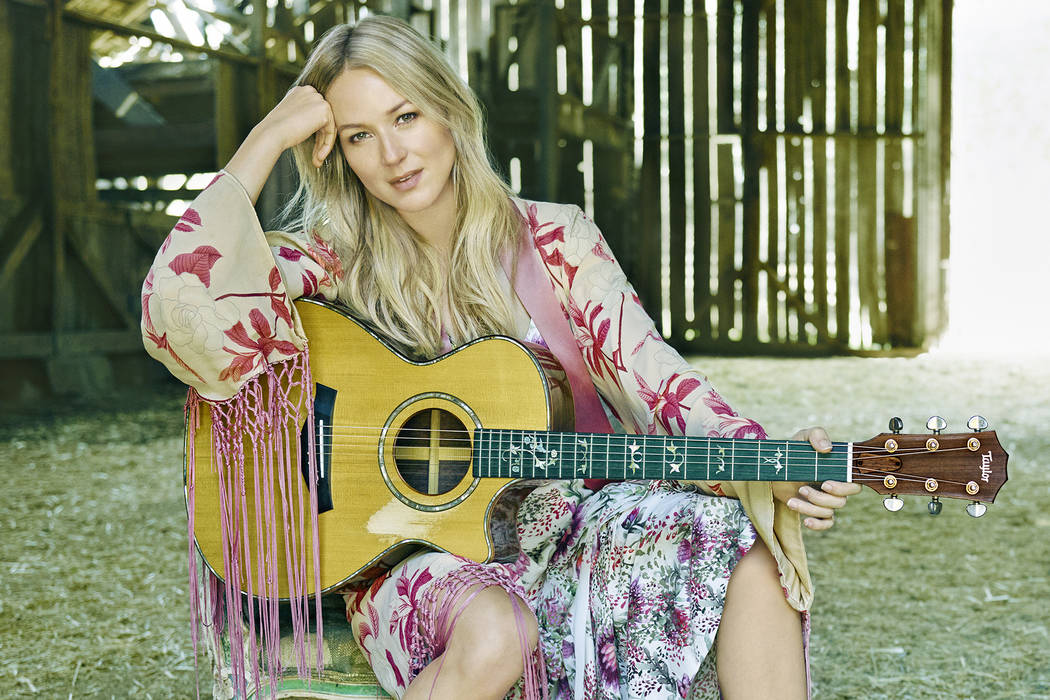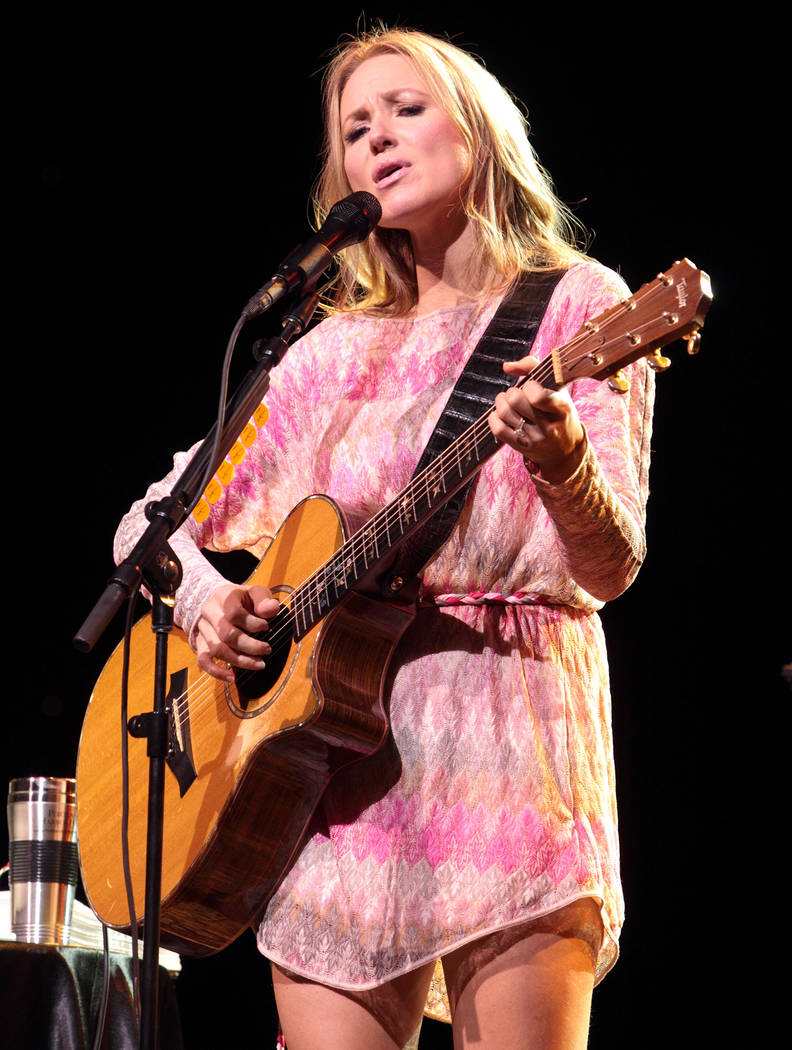Jewel taps her musical roots for two-night stand in Las Vegas


Jewel’s explaining how Jewel occasionally gets on Jewel’s nerves.
“I’m like, ‘Why don’t I just write to show off my voice?’ which I don’t seem to do. It’s frustrating to me sometimes,” she chuckles. “I tend to write for the storytelling.
“I just did a show at the Hollywood Bowl not long ago with the orchestra where I got into a lot of standards and classics where I could really stretch my voice out, because I work at it every day,” she continues. “I love singing. I think I’m in better voice than I ever have been in my career, so I’m coming into a phase where I’m definitely wanting to stretch that out a bit more. Maybe it’ll affect my writing, but for now, I’m going to do this show.”
That would be “Hits, Muses and Mentors,” which the 43-year-old will perform over two nights at the Encore Theater.
The concerts reaffirm Jewel’s local ties: She lives in Lake Las Vegas part of the time, works with a youth organization in Southern Nevada and says she’s starting a company with Zappos.
“Just spending so much time in Vegas made me start thinking about doing a show that was structured slightly differently,” she says, her voice cotton-ball soft. “I wanted to do this show to highlight my singing in a way that people don’t often get to hear. I’m going to have a chance to show a lot of the singers who influenced me, like Sarah Vaughan, Etta James, Ella Fitzgerald, show a lot more of my range by doing some of the classics, as well as what influenced me as a writer, Leonard Cohen, Bob Dylan, Merle Haggard. All these people who took me under their wing when I was young and really gave me the courage to follow my muse, wherever it took me.”
‘Discovered as an accident’
About those influences: From the time she started singing with her dad as part of a father-daughter duo, playing bars in their native Alaska when she was a kid, Jewel says she wasn’t drawn to various artists by genre, but by viewpoint.
“To me, Dolly Parton and Joni Mitchell had a lot in common, not because one was country and one was folk, but because both unapologetically told you what their life was like,” she explains. “Merle Haggard and Bob Dylan, very unapologetic, and they also always wrote about society as a whole, not just about their own personal life, not just about love. My reading was the same way. I tended to be drawn to working-class writers who talked about the plight of humanity, the Russian writers, Steinbeck, revolutionary poets. That’s what really shaped me.”
Jewel is a published poet herself: Her 1998 tome “A Night Without Armor,” sold over a million copies. She might have been a writer if not a musician, which she says she never thought she could make a living at back in the day.
To wit: Jewel was homeless in San Diego when she landed her first record deal.
“I had a boss proposition me,” she recalls. “I wouldn’t have sex with him, so he wouldn’t give me my paycheck, and I couldn’t pay my rent. I was living in my car and then my car got stolen.
“I ended up getting a gig singing, and then writing my own music for the gig, because I didn’t know enough guitar to learn other people’s songs,” she continues. “I was just trying to get by, get a couple hundred bucks to start saving up for rent. I got discovered as an accident.”
‘I always took the risk’
Her path to stardom was similarly circuitous.
Though Jewel’s 1995 debut “Pieces of You” would eventually become a huge success, selling over 12 million copies in the U.S. alone, it took over a year for it to become a hit, propelled by first single “Who Will Save Your Soul.” Up to that point, her label considered the album a failure and wanted her to move on and start working on her second record.
And so she turned to a pair of fairly reputable mentors: Dylan and Neil Young.
Those mavericks advised some mavericking.
“I told them how worried I was about radio, what if I never had a hit?” Jewel recalls. “And they were like, ‘It doesn’t matter; you just need to be who you are, get on stage and be honest.’ They really drilled that into my head, that it was a privilege and a right of a songwriter to take risks, even if it doesn’t work.
“It definitely bolstered my courage,” she says. “Once ‘Who Will Save Your Soul’ became a hit and then that record went on to sell so much, it felt like pressure for a little while. Then I realized, ‘There’s just no guarantee in art. You may never have a hit again, even if you’re a cliche, even if you do ‘Who Will Save Your Soul 2.0’ or ‘3.0.’ So you might as well do what interests you, what feels dangerous and authentic. It’s worse to fail playing it safe than to fail taking a risk. So I always took the risk.”
Contact Jason Bracelin at jbracelin@reviewjournal.com or 702-383-0476. Follow @JasonBracelin on Twitter.













